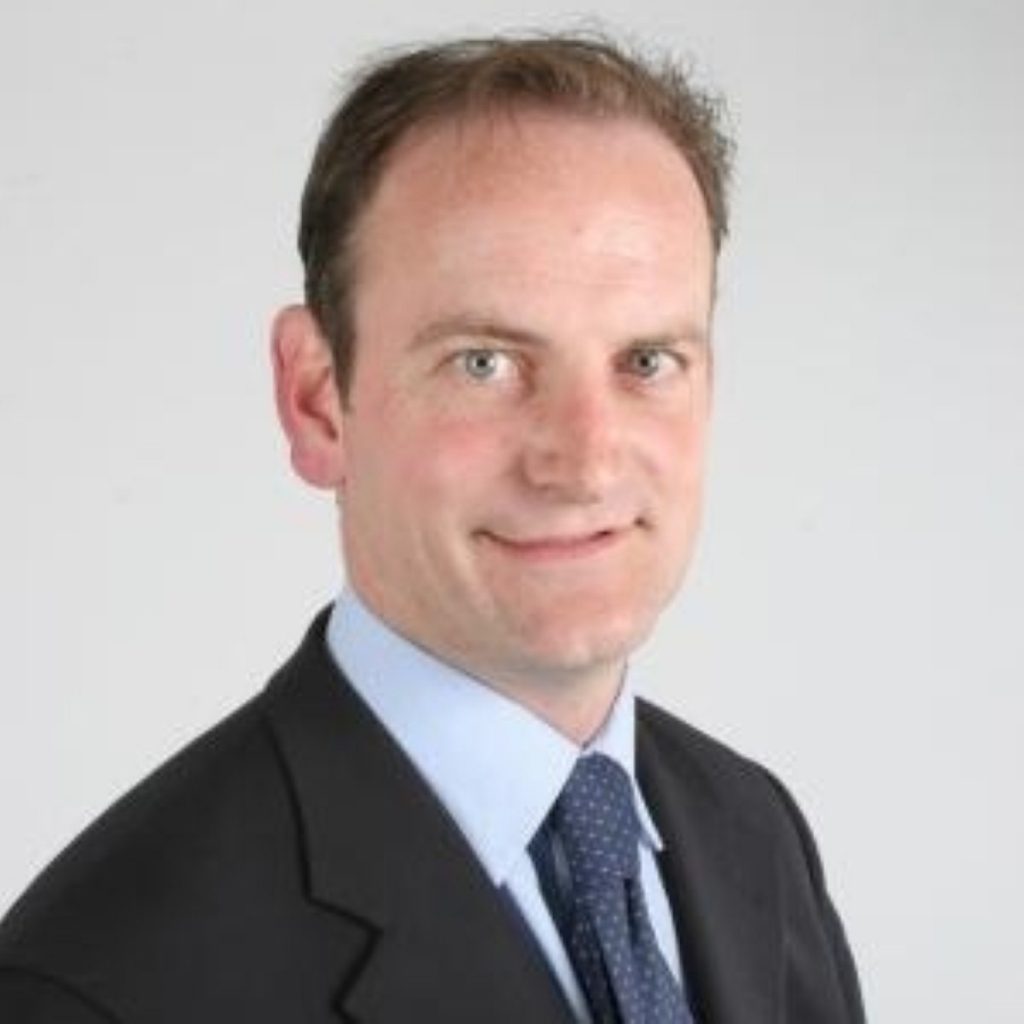Interview: Douglas Carswell
You know a man’s not afraid of taking on big targets when he challenges the sitting prime minister at a general election.
By Alex Stevenson
The idea that the constituents of Sedgefield would chuck Tony Blair out of parliament after just one New Labour term was, of course, laughable.
Yet such is the ineffable nature of Douglas Carswell, now the Conservative member for Harwich, that he had a go anyway. Given he takes the credit for knocking 7,500 off Mr Blair’s majority – “I apologised for only managing to come second”, he explains with a glint in his eye – perhaps he should be blamed for the Iraq war, top-up fees, and everything else.


Perhaps not. Carswell was busy spending the years which followed campaigning to win Harwich, which he took from Labour in 2005 with a 920-vote majority. It was a long journey for the boy who grew up in Uganda, was too busy enjoying “fun things” at university for politics, and who had worked in business and fund management.
How would he respond to the hallowed halls of power in the Commons, the venerated statues, the time-honoured traditions of the Palace of Westminster?
“I’m naturally conservative in my outlook and I accepted all the stuff I was taught in A-level politics about our constitution being this wonderful institution. Don’t get me wrong – Margaret Thatcher’s one of my all-time greatest heroes. But I couldn’t reconcile the things I had been taught about our supposedly great constitution with what I saw in my own eyes.”
Carswell recalls being appalled at the “shoddy, self-serving institution” he found himself in. Being told he wasn’t allowed to table questions about “wonky” subjects like the licence fee – a perfectly legitimate topic for scrutiny – didn’t help. When Speaker Michael Martin didn’t lift a finger to help, he knew something was wrong.
“I thought hang on – this guy isn’t championing backbenchers,” he remembers. “It’s bogus, it’s a facade, it doesn’t really work.”
As anyone familiar with political events this year knows, Carswell was instrumental in forcing Martin’s exit from the Speaker’s chair. Openly standing up in the Commons and calling on him to quit was, put simply, a historical event. Yet when asked it Carswell makes clear this is only step one of a wider campaign.
“Michael Martin wasn’t purely the problem – he was a symptom of a wider malaise. He had to go, but we now need to follow up with this change,” he says. “The removal of the Speaker wasn’t the end of the process – it’s the start.”
We should have seen it coming. It’s soon clear that he’s been more than reluctant to become pliable lobby-fodder. He rages against the expenses scandal, describing the Commons as “self-serving” and condemning its politicians as not doing justice to our heritage.
I tentatively invite him, as someone less than comfortable with the status quo, to deliver his thoughts on the party system. Already he has admitted that 100 years ago he would have been a Liberal, and that he’s a Conservative because “only the centre-right can bring about the sort of radical changes we need”.
Now he doesn’t hold back. “I think the tyranny of the party system actually diminishes our democracy,” he says.
“Surely it’s a totally artificial modern construct that everyone in the party must agree on absolutely everything. I think one of the reasons people don’t trust politics is politicians literally read from the same script.”
It’s interesting that he raises the internet at this point, flagging it up as the means through which the centralisation and branding which has been New Labour’s legacy will be broken. Carswell’s own blog, which you can have a look at here, has made him one of the leading lights among internet-savvy MPs. He’s got no doubts about the web’s potential.
“The internet removes the barrier to entry in business and commerce. It’s about to remove the barrier in politics,” he predicts.
“The way the parties must adapt to the internet is to become more open-source -they need to embrace things like open primaries, they need to make sure there’s a much looser control of the message, a much more democratic approach. They need to embrace localism so we don’t try and have identikit politics across the country.”
The popularity of his blog has been helped, in no small part, by the strength of his opinions. After becoming quickly disillusioned with what he’d found was “acceptable behaviour in SW1” Carswell co-authored The Plan, a radical outline of proposals to shake up Britain’s democracy. Step one, Martin’s removal, has been completed. But there are many more scalps to be secured.
The Tory agenda under Thatcher was radical enough, challenging the consensus on the economy.
“Maybe step two for the Conservatives is challenging the status quo over politics,” he says. Carswell, for all his frustration with the Commons, remains determined he can use his party to achieve his plans for parliament. The old habit of taking on big challenges doesn’t seem to have faded just yet.












